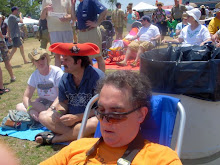Effect of Hurricane Katrina
Thanks to Clay for giving me permission to post this to his excellent blog. A former jury consultant, I presently work in administrative law but continue to follow research and news relating to jury behavior.
It is interesting to consider the impact of the Hurricane Katrina disaster on the attitudes and behavior of jurors in the upcoming months and years, especially in the South. It is difficult to determine exactly how any catastrophic event will affect verdict outcomes. The specific facts and issues associated with each case are unique, but generalizations are possible. The terrorist attack of 9-11 provides an interesting example. An Islamic defendant in a criminal case facing ordinary street crime charges may well have experienced some level of bias in how jurors perceived him after the incident, even if the charges were completely unrelated to what we ordinarily consider to be “terrorism.”
Similarly, if predictions concerning the impending conflicts between homeowners and insurance companies come to pass, we may observe attitudes towards insurance companies become even more cynical and suspicious than they are at the present time. In states such as Louisiana, Mississippi, Texas, and Alabama, this could influence verdict outcomes in cases beyond those relating to the immediate disaster. Insurance companies are likely to find themselves even more under the gun, even in ordinary litigation. (Whether jurors in these southern states are biased in favor of or against insurance companies and other defendants is debatable and Clay and I disagree. In support of my position, see, e.g., ATRA’s listing of counties in Texas, Louisiana, and Mississippi [pre-tort reform] in http://www.atra.org/reports/hellholes/report.pdf.) Likewise, negative public opinion about oil companies will come back to haunt them in cases where they sit as defendants. Clay observes that large corporations may serve themselves and the public well by showing a willingness to enter into compromise settlements in disputed claims where a population has been decimated due to the storm. Arguments about whether damage was caused by wind or weather may prove costly in the long-term as cases go to trial. Regardless, lawyers on either side of the aisle will be hard-pressed to consider how potential jurors view the disaster, and how their perceptions might cause them to vote on key case issues.
Philip Monte, Ph.D., J.D.


0 Comments:
Post a Comment
<< Home